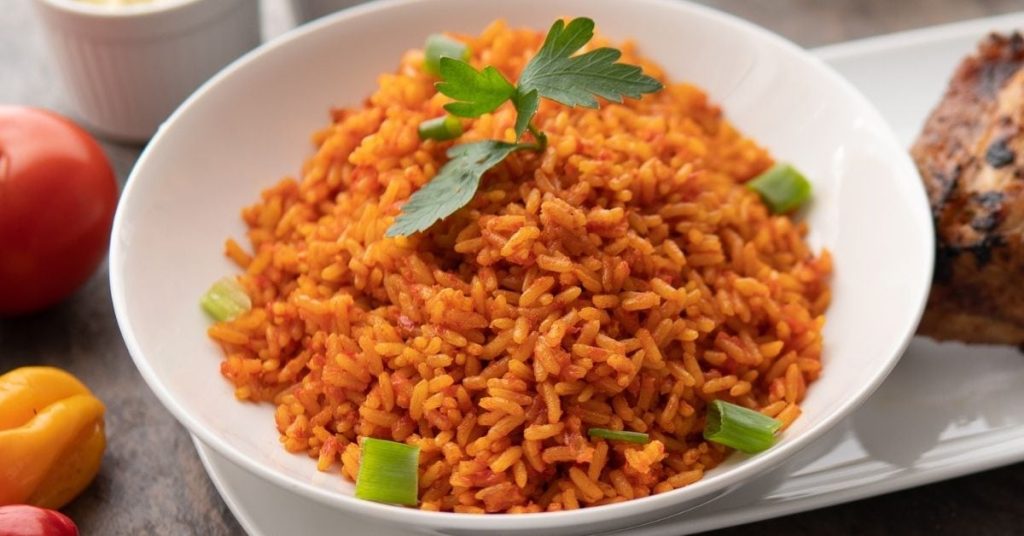Nigerian cuisine is known for its rich and diverse flavors, and it has become increasingly popular in recent years. Nigerian food is a fusion of traditional West African dishes with influences from other cultures such as Portuguese, British, and Indian. This blend of cultures has created a unique culinary experience that is loved by many. In this article, we will be discussing the basics of how to cook Nigerian food.
Table of Contents
Introduction to Nigerian Cuisine
Before we dive into the cooking process, it's important to understand the basic components of Nigerian cuisine. Nigerian dishes are typically made up of a carbohydrate staple, a protein, and various spices and vegetables. The most common carbohydrate staples used in Nigerian cooking are rice, yams, cassava, and plantains. The protein sources used in Nigerian dishes include beef, chicken, fish, and goat meat.
Nigerian cuisine is also known for its unique blend of spices and herbs that are used to flavor the dishes. These spices include ginger, garlic, thyme, curry powder, and cumin. Vegetables such as tomatoes, onions, and peppers are also used in abundance in Nigerian cooking.
Essential Nigerian Cooking Techniques
There are several essential techniques involved in Nigerian cooking that you should master before attempting to cook Nigerian food. These techniques include:
Boiling
Boiling is a common cooking technique used in Nigerian cuisine, especially when preparing stews and soups. To boil meat or vegetables, add them to a pot of boiling water with spices and seasoning and cook until tender.
Frying
Frying is another common cooking technique used in Nigerian cuisine, especially when preparing snacks such as puff-puff (deep-fried dough balls) and chin chin (deep-fried pastry). To fry food, heat up vegetable oil in a deep frying pan until hot and then add the food to the oil until it is golden brown.
Grilling
Grilling is another popular cooking technique used in Nigerian cuisine, especially when preparing barbeque chicken or fish. To grill food, heat up a grill or grill pan and then place the food onto the grill, turning it regularly until it is cooked through.
Nigerian Food Recipes for Beginners
Now that you understand the basics of Nigerian cuisine and cooking techniques, it's time to dive into some Nigerian recipes for beginners.
Jollof Rice
Jollof rice is a classic Nigerian dish that is loved by many. To make jollof rice, you will need:
- 2 cups of rice
- 2 cups of chicken broth
- 1 can of diced tomatoes
- 1 onion, diced
- 1 red bell pepper, diced
- 2 cloves of garlic, minced
- 1 teaspoon of curry powder
- 1 teaspoon of thyme
- Salt and pepper to taste
- 1 tablespoon of vegetable oil
To prepare the jollof rice:
- In a large pot, heat up the vegetable oil and sauté the onion and garlic until fragrant.
- Add the diced bell pepper to the pot and cook until tender.
- Add the can of diced tomatoes, curry powder, thyme, salt, and pepper to the pot and simmer for 5 minutes.
- Add the rice to the pot and stir to coat the rice with the tomato mixture.
- Add the chicken broth to the pot and bring to a boil.
- Reduce the heat to low, cover the pot with a lid, and let the rice simmer for 20-25 minutes, or until the liquid has been absorbed and the rice is tender.
Egusi Soup
Egusi soup is another classic Nigerian dish that is made with melon seeds. To make egusi soup, you will need:
- 2 cups of egusi (melon) seeds
- 1 onion, diced
- 2 cloves of garlic, minced
- 1 teaspoon of curry powder
- 1 teaspoon of thyme
- 1 teaspoon of chili powder
- Salt and pepper to taste
- 2 cups of chicken broth
- 2 cups of chopped vegetables (spinach, kale, collard greens, or bitter leaf)
- 1 tablespoon of vegetable oil
To prepare the egusi soup:
- Heat up the vegetable oil in a large pot and sauté the onion and garlic until fragrant.
- Add the egusi seeds to the pot and cook until browned.
- Add the chicken broth, curry powder, thyme, chili powder, salt, and pepper to the pot and bring to a boil.
- Reduce the heat to low and let the soup simmer for 20-25 minutes.
- Add the chopped vegetables to the pot and let them cook for an additional 5-10 minutes until tender.
Suya
Suya is a popular Nigerian street food that is made with grilled meat skewers. To make suya, you will need:
- 2 pounds of beef or chicken, cut into thin strips
- 1 tablespoon of ground ginger
- 1 tablespoon of ground garlic
- 1 tablespoon of chili powder
- 1 teaspoon of cumin
- Salt and pepper to taste
- Vegetable oil
- Skewers
To prepare the suya:
- Mix the ginger, garlic, chili powder, cumin, salt, and pepper together in a bowl.
- Thread the meat strips onto the skewers and brush them with vegetable oil.
- Rub the spice mixture onto the meat skewers and let them marinate for at least 30 minutes.
- Grill the skewers on a hot grill or grill pan until cooked through.
Tips for Cooking Nigerian Food
- Invest in good quality spices and herbs. Nigerian cuisine relies heavily on spices and herbs for flavor, so it's important to use high-quality ingredients.
- Don't be afraid to experiment with different flavors and ingredients. Nigerian cuisine is all about creativity and experimenting with different flavor combinations.
- Use fresh ingredients whenever possible. Fresh vegetables and meats will enhance the taste of your dishes.
- Take your time when cooking. Nigerian dishes often require a longer cooking time to allow the flavors to develop fully.
Conclusion
Nigerian cuisine is a rich and diverse culinary experience that is loved by many. By following the essential cooking techniques and trying out some beginner-friendly Nigerian recipes, you can take your taste buds on a journey to West Africa. Remember to be adventurous and experiment with different ingredients and flavors to create your own masterpiece.
FAQs
What is the most popular Nigerian dish?
- Jollof rice is considered the most popular Nigerian dish, loved by many.
Can I substitute yams or cassava for rice?
- Yes, yams and cassava can be used as a carbohydrate staple in Nigerian dishes instead of rice.
What is the best way to store Nigerian spices?
- It's best to store Nigerian spices in an airtight container in a cool, dry place away from sunlight.
Can I make Nigerian food without palm oil?
- Yes, you can substitute palm oil with vegetable oil or coconut oil in Nigerian dishes.
What is the difference between Nigerian and other West African cuisines?
- Nigerian cuisine has a unique blend of flavors and spices that sets it apart from other West African cuisines. It also has a strong emphasis on stews and soups, as well as the use of yams and cassava as carbohydrate staples.




